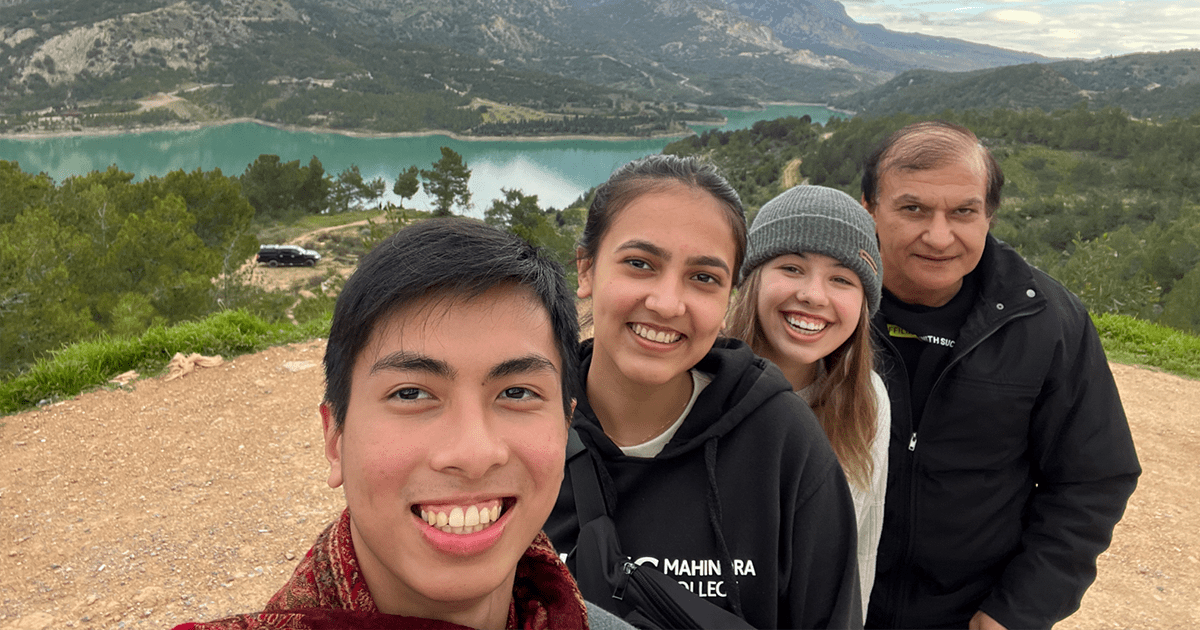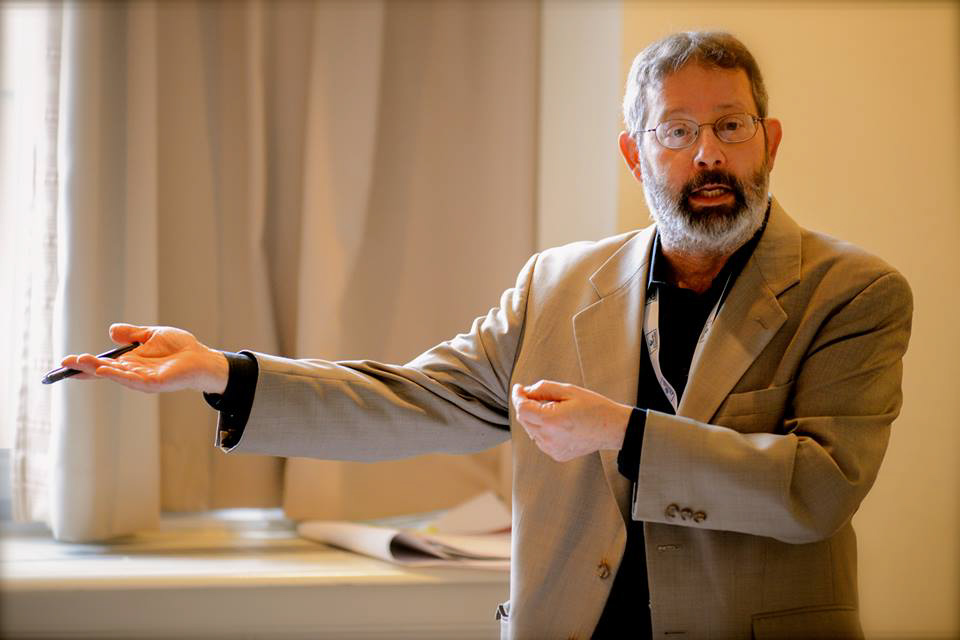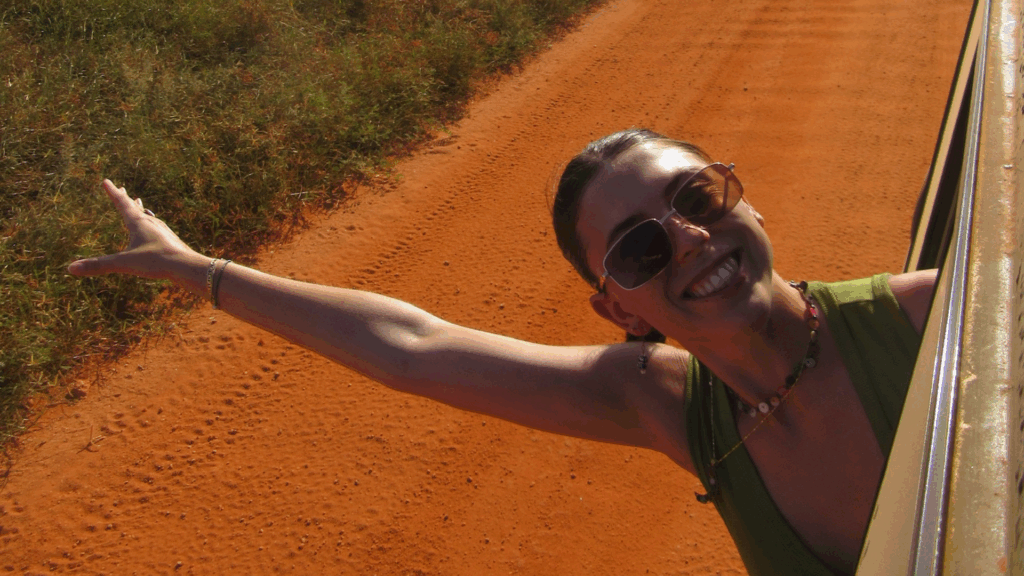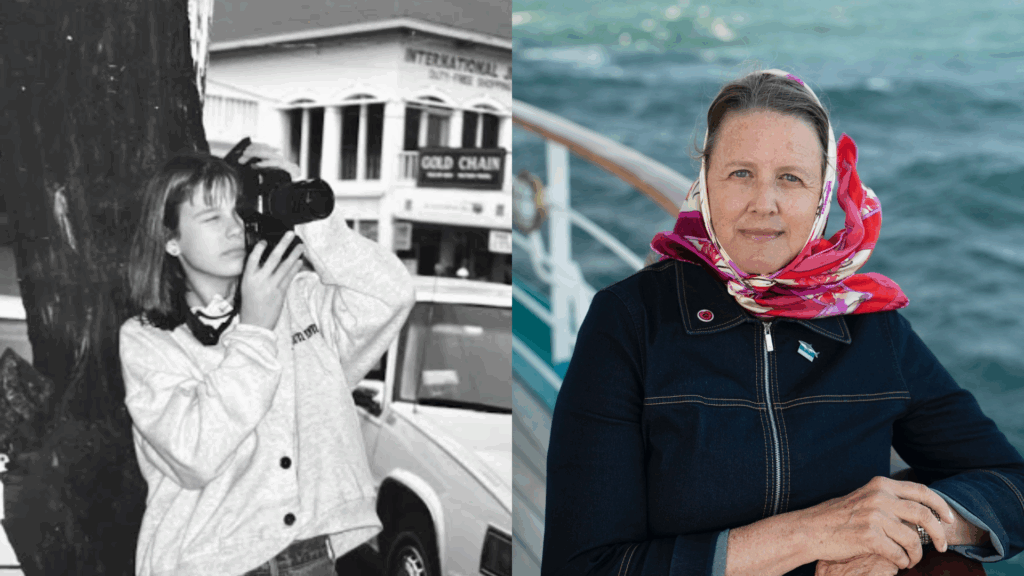A Stolen Car and an Island with a Lack of Public Transportation
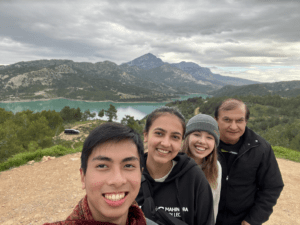
I was in the back of a taxicab, eyes taking advantage of a view smeared by foggy rear windows. The scenery had started to show signs of snow the moment we entered the mountains, and at the first sighting, the car seemed to light up with excitement. A travel companion of mine, Parisha, had never seen snow. This was her first encounter. Faces pressed to icy glass, we meandered our way through the mountains. The taxicab was taking us towards the border of Northern Cyprus, the section of the island that had become occupied by Turkey in 1974. Our driver was 11 at the time of the invasion, and he and his family had lived in a village home just over the buffer zone. So close that, “If they had decided to stop two kilometres earlier, my village would’ve been spared.” Antonis was a kind man, existing at an age between father and grandfather; he happily spent his days before retirement as a taxi driver. He seemed eager to share, to tell a story of Cypriots connected, in contrast to the political picture a border presents of two countries in conflict. In the car I was accompanied by a photographer and a friend, the plan being for the taxicab to drop us off at the edge of the buffer zone to observe and capture the divide.
We started to explore the buffer zone on foot, while Antonis crossed into Northern Cyprus with the ease of entering a grocery store. He hadn’t been in years due to the pandemic, and he mentioned more than once how he missed visiting his childhood home. Somewhere over the years, he had become friends with the Turkish man who lived in his home, recently remodeled, and now ran a miniature general store from one of the spare bedrooms. The shop was closed on this day, but Antonis brought back baklava to share.
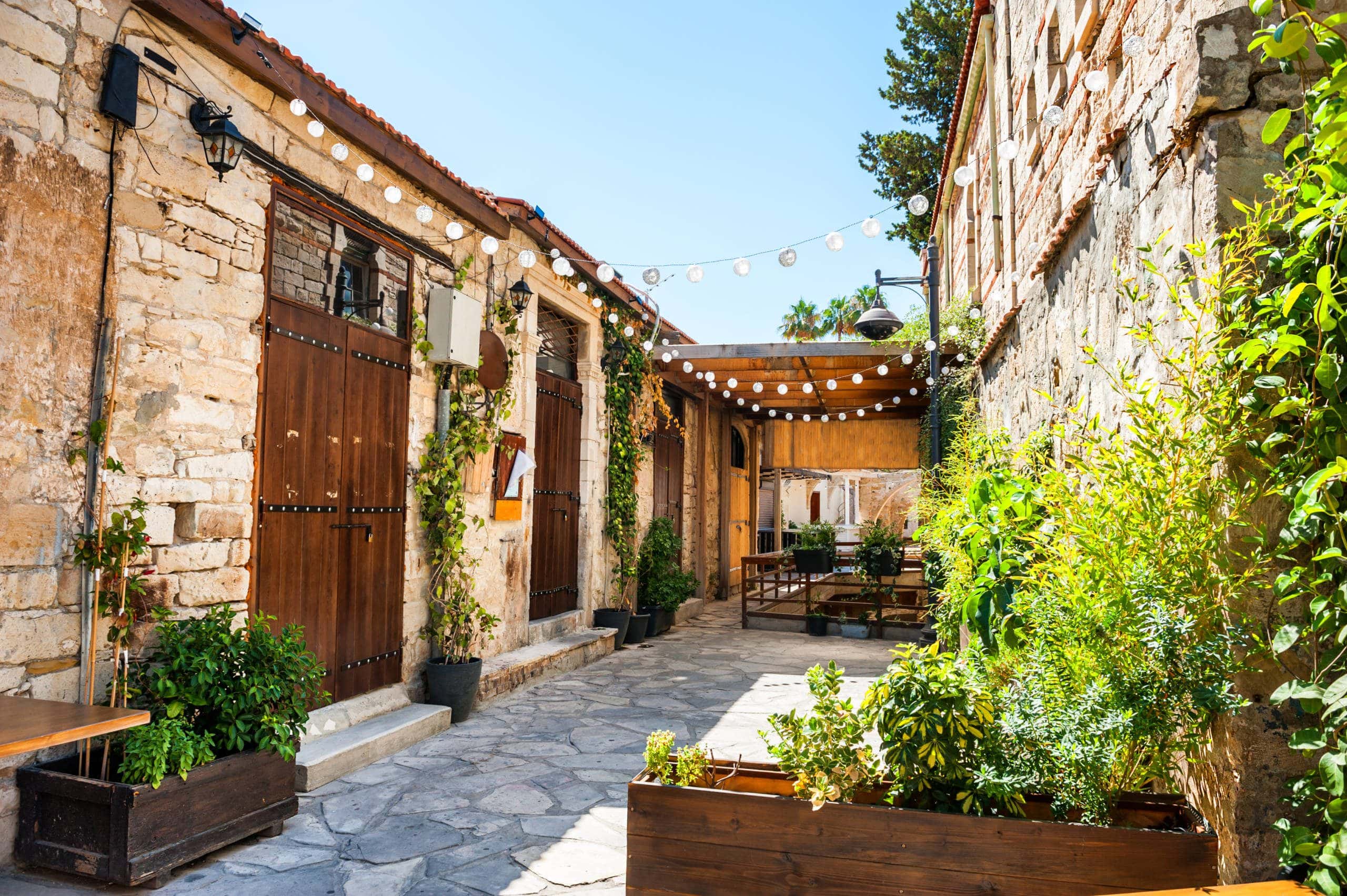
While wandering, we encountered a tourist who had just returned from the other side of the buffer. He, too, was a photographer, and had ventured into Northern Cyprus to capture people and places. While we had been instructed by leadership from Semester at Sea not to make the cross ourselves for safety reasons, the photographer was friendly, and offered to show us some of his photos so we might live vicariously through his lens. Antonis had earlier remarked how the town in which he grew up looked very much the same, with development seemingly coming to a halt in the 70’s. The images we saw showed the same story. Ghosts of brick and mortar, stone and time, standing stubbornly next to schools and functioning businesses. In many ways Northern Cyprus seemed to be different and the same as the rest of the island. It seemed near ridiculous how much fear we had unconsciously collected from the cautionary concerns of others. The photographer continued to show us images of otherwise seemingly average people and places. I inquired about the safety of his trip. He replied with a causal air, telling us he found it no more difficult than any other trip into a foreign country.
In the taxicab ride back towards Kakopetria, Antonis told us a story. When he had left for university, he met a girl once. She was a Turkish Cypriot, and upon finding out that Antonis was a Greek Cypriot, they shared a moment of surprise. She had been taught growing up – through depictions in textbooks and biased educators- that the Greeks were evil and barbarians. Antonis immediately frowned, for that is what he had been taught about the Turkish.
Once back in the small mountain village of Kakopetria, the group I was traveling with found ourselves unable to order a taxicab to get us to our next destination, and our attempts at hitch hiking were proving to be futile. Temperatures dropped, and so did our hopes of finding a ride. Chasing an idea, I made my way into the closest coffee shop in search of public wifi I could use in an effort to procure another mode of transportation. However, I soon found myself talking with the barista. Mikalis was a skilled barista and an outgoing man, nearing his mid-twenties, and it would’ve been hard to avoid conversation. Before I knew it, my travel companions rejoined me and we were all sitting outside, drinking our coffee, and chatting with the barista and owner of the cafe, who we soon found out were one and the same.
Mikalis had grown up in Kakopetria, and began to tell us about the fear he faced before finally crossing the buffer zone into Northern Cyprus for the first time only a few years ago. Similar to Antonis, he was taught growing up that there wasn’t much good to find in the people on the other side of the divide. Now he took the trip frequently, and had numerous friends residing on the other side of the buffer zone. They were friendships forged in defiance and in spite of language barriers; connections resulted from persistence, making each one all the more special.
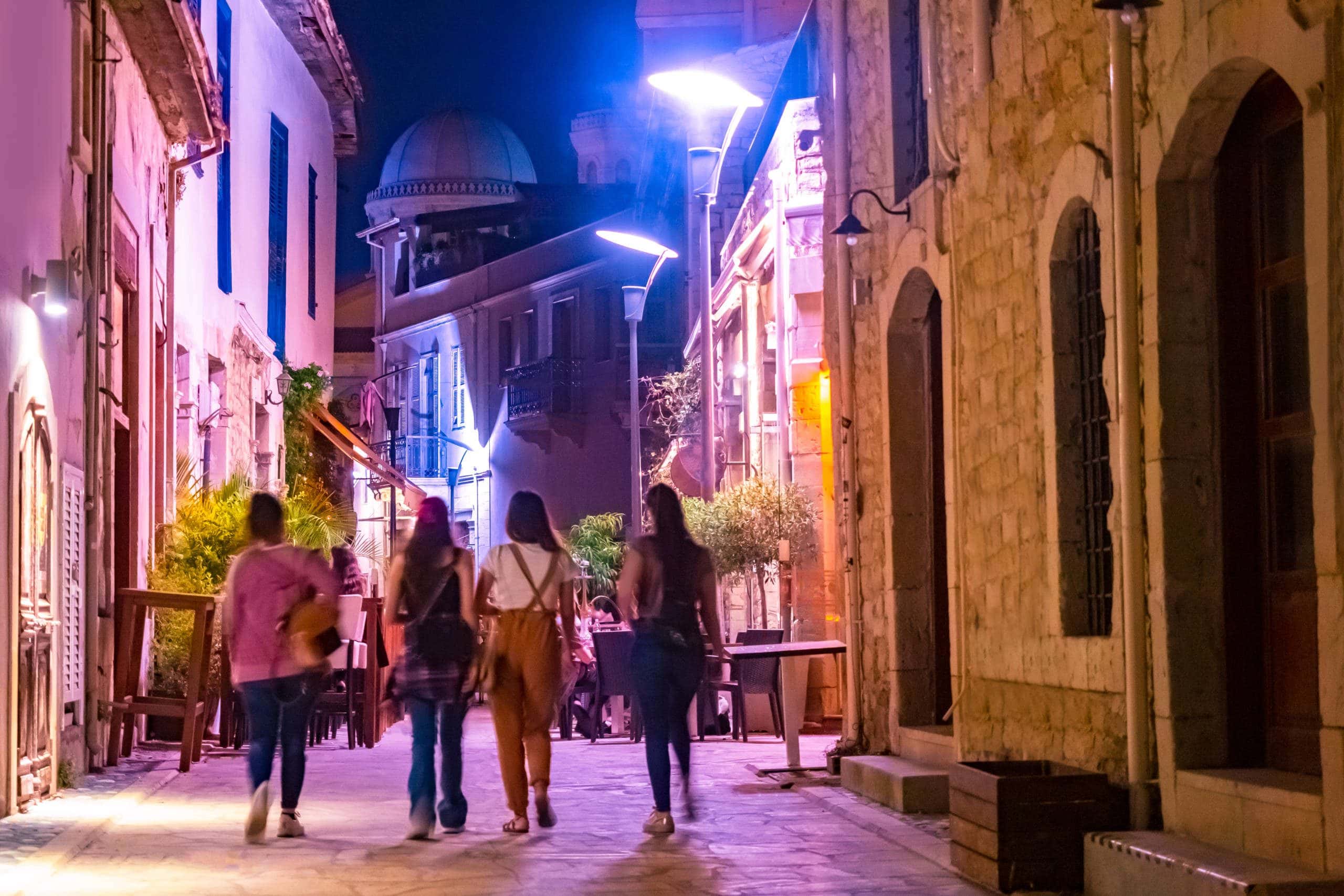
Later that night, stranded on a remote part of the island, we found ourselves once again in pursuit of a taxicab. Night encroached on the scene, forcing us to approach the first person we encountered to ask for a ride. It was a white pickup truck, and the man instructed us to throw our luggage in the bed and hop in the back. Now having safely avoided the threat of sleeping on sand, or hiking for miles in the dark, I found it enjoyable, getting to know the generous driver. Eventually, as all our conversations with people from the area seemed to do, the conversation veered towards Northern Cyprus. The driver gave us an umbrella statement, “If you ask a Cypriot they’ll tell you not to go, them and the Turks, they don’t get along.” I inquired how long he had lived on the island, to which he responded, less than two years. It seemed we had collected yet another unique point of view, this one rather young in comparison to the stories of both Antonis and Mikalis. My trip ended shortly after the man dropped the group of us off at a bus stop. As we began the final leg of the journey back to the MV World Odyssey, the ship I arrived on, I considered the metaphor Antonis had left us with.
Think of a stolen car. Whoever stole it will drive it, use it, treat it as their own. But just because they’ve stolen it and believe it’s theirs for the taking, doesn’t make that true. Nobody else is going to recognize the car as belonging to anyone other than the rightful owner.
On the bus ride home, I considered how in the metaphor, Turkey was the thief and Northern Cyprus was the car. Throughout my trip I had collected different views: Antonis, a Cypriot who had lived a life before and after the the birth of the buffer zone. Mikalis, who had only ever grown up in a divided Cyprus. And the last man, who had so freely offered us a ride, and who just recently moved to the island. I had taken a Kaleidoscope to the issue but I had only examined what I believed to be a few of the many colorful perspectives. Hauntingly different, but similar in shades, there seemed to be a patchwork of world views when it came to Northern Cyprus. But a solid and singular world view was never destined to come into focus, or I would’ve used a telescope. I continued to wonder as the bus dropped us off at the port. At the sight of a taxi stand, and the multiple taxicabs parked just feet away from where our journey began, I finally appreciated all the time I spent in pursuit of a taxicab.
